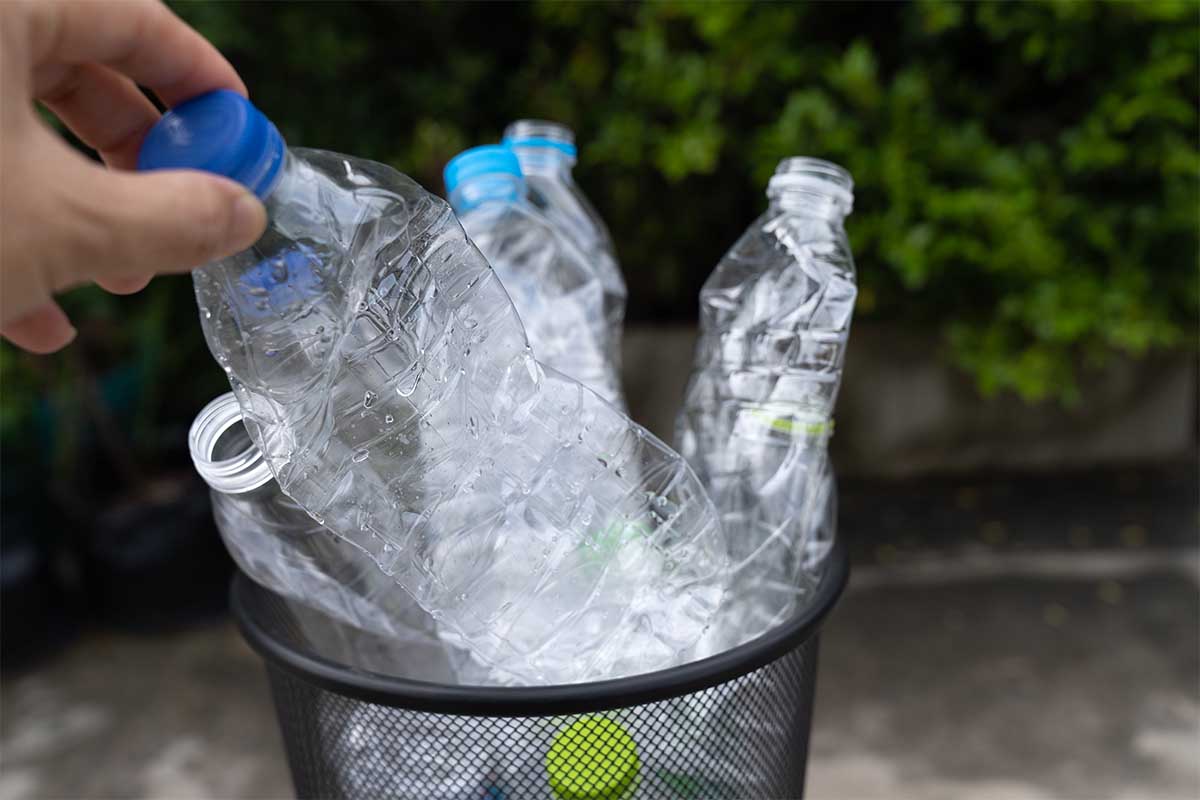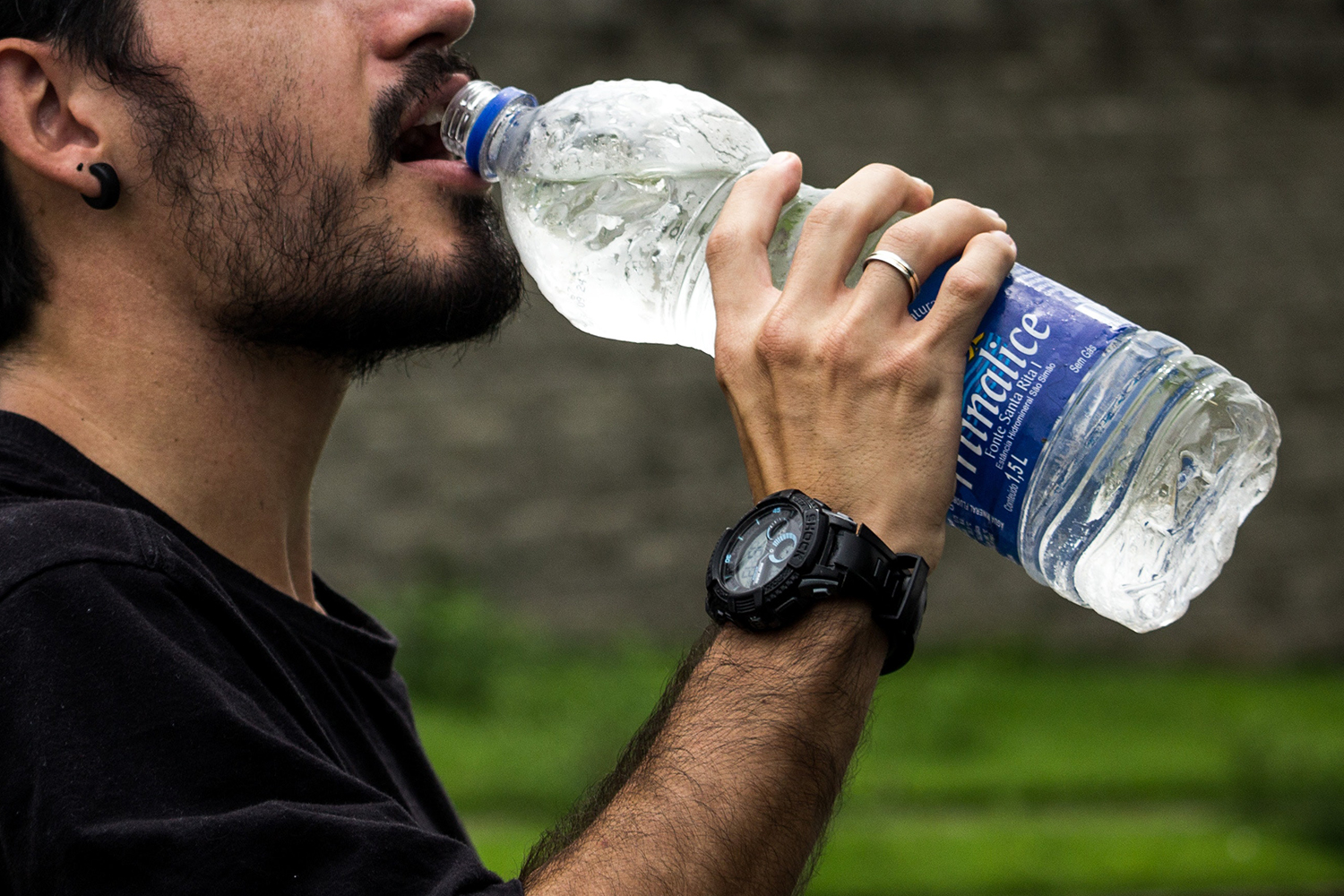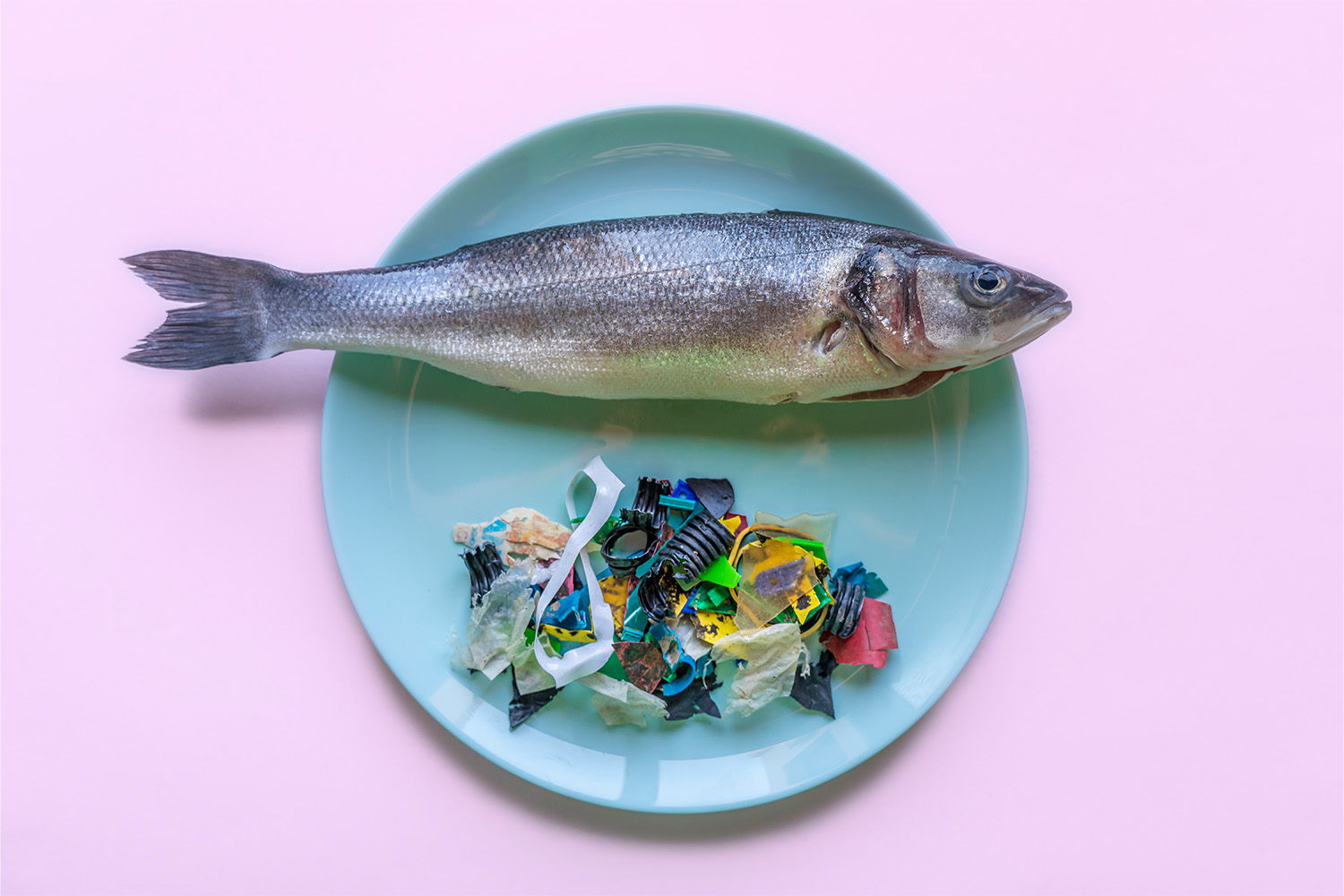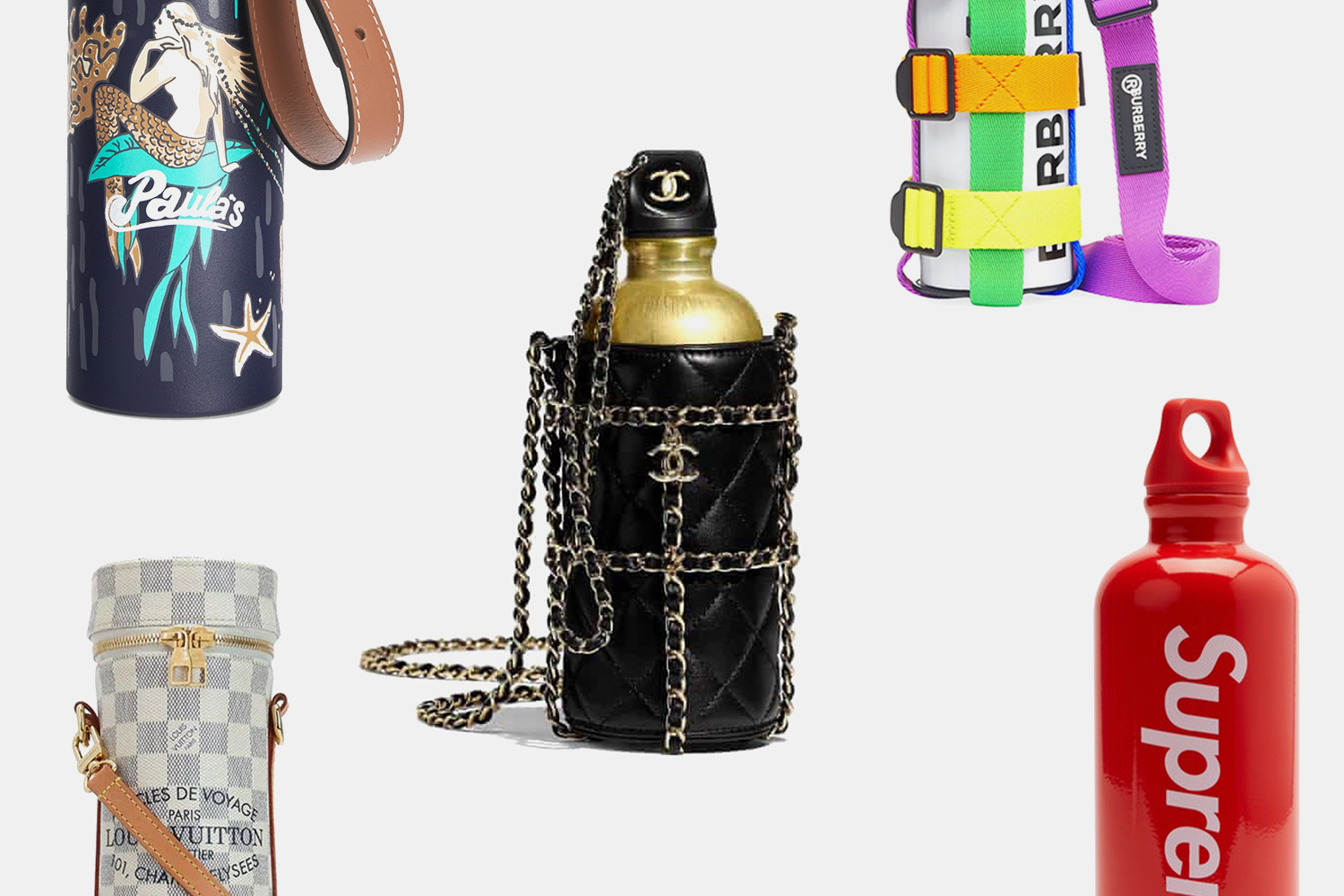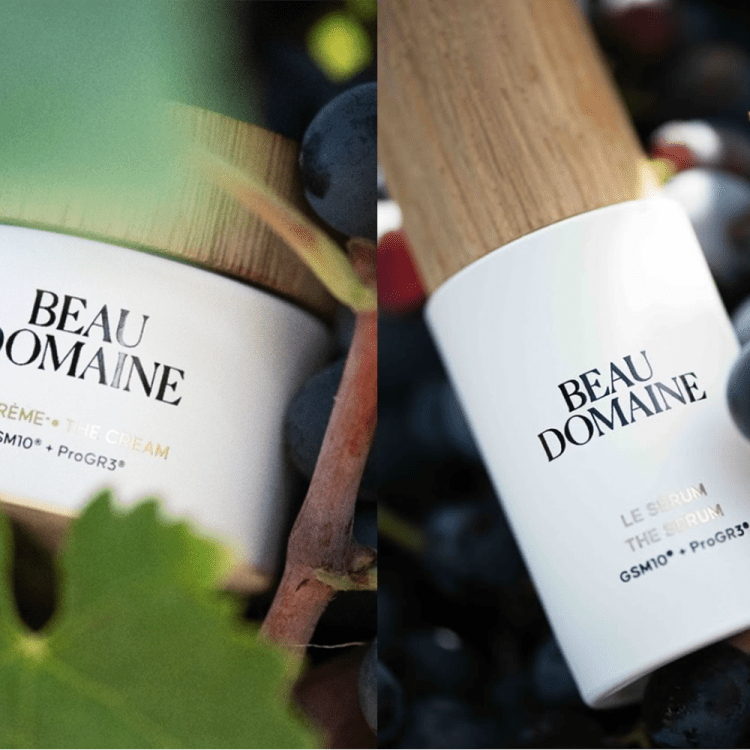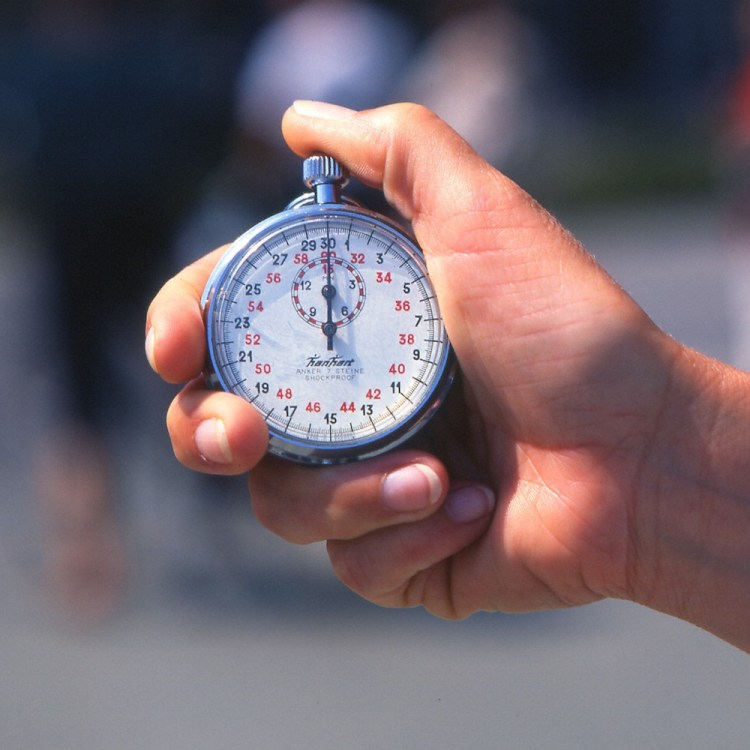That plastic bottle of water? Apparently it’s full of plastic. According to the organization Agir pour l’Environment (Acting for the Environment), 78% of bottled water from the best-selling brands in France is contaminated with microplastics.
“Every week, we ingest an average of 5 grams, the equivalent of a credit card,” the NGO notes in its latest report. These microplastics then contaminate the water cycle, soil, food chain and even our own bodies. Microplastics are tiny, virtually invisible fragments of plastic between 0.0001 and 5 millimeters. Researchers found that “changes in the gastrointestinal tract from plastic are linked to metabolic diseases like obesity, diabetes and chronic liver disease.”
As Food Navigator notes, a study by scientists at the State University of New York in 2018 discovered there are roughly twice as many plastic particles in bottled water compared to tap water. For the new study by Agir pour l’Environment, in conjunction with the lab Labocéa, virgin and recycled plastic bottles were analyzed from the top-selling bottled water brands. The organization suggests that most of these microplastics come from the bottle, cork and bottling process, and that subjected to strong heat and light, even more microplastics might be released.
The 9 Best Reusable Water Bottles for 2022
Quench your thirst with these insulated and travel-friendly optionsNatural Mineral Waters Europe (NMWE) — the trade association representing the bottled water industry — has dismissed these claims, suggesting the study was limited and the results not yet duplicated. They also point to a World Health Organization report from 2019 that was inconclusive about microplastic toxicity.
Given that there’s no upside to microplastics in your water, Agir pour l’Environment has outlined an action plan that includes banning single-use plastics, utilizing biodegradable materials on bottle designs, discontinuing the use of plastic with food that will be heated and improved testing for microplastic detection.
The Charge will help you move better, think clearer and stay in the game longer. Subscribe to our wellness newsletter today.
